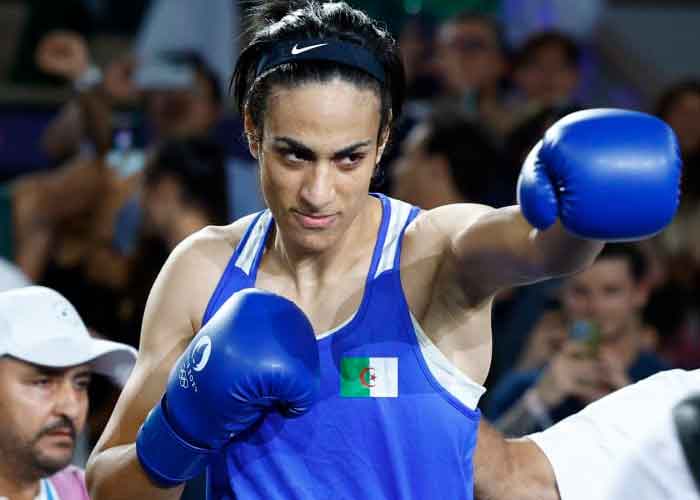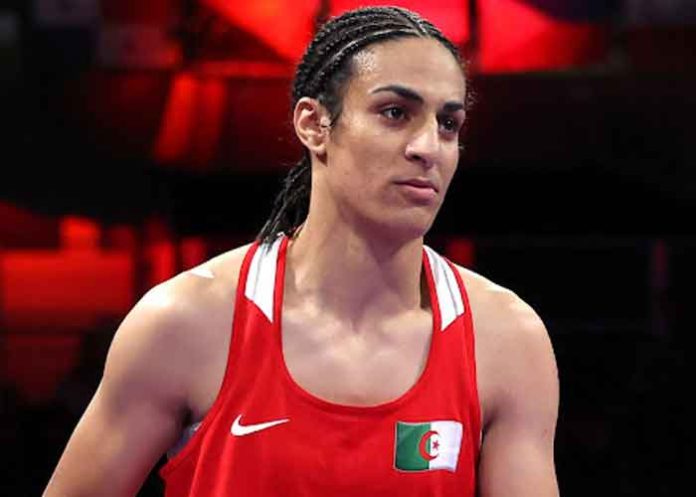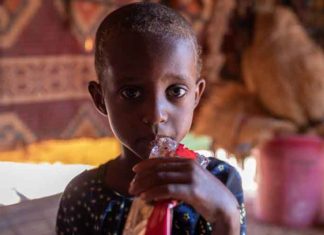Algeria, Nov 5, 2024 (Yes Punjab News)
Imane Khelif, the Algerian boxer who claimed a gold medal in women’s boxing at the 2024 Summer Olympics in Paris, has become embroiled in a gender controversy. A leaked medical report obtained by French journalist Djaffar Ait Aoudia revealed that Khelif possesses internal testicles and an XY chromosomal structure, pointing to a rare condition known as 5-alpha reductase deficiency. The condition affects biological males, leading to ambiguous genitalia, typically including a micropenis, and internal testicles instead of a uterus.
The Medical Report and Findings
The report, drafted through a collaborative effort between Kremlin-Bicêtre Hospital in Paris and Mohamed Lamine Debaghine Hospital in Algiers in June 2023, revealed specific biological markers associated with Khelif’s condition. The MRI results showed Khelif lacks a uterus but has internal testicles, while chromosomal analysis confirmed her karyotype as XY, which generally characterizes male biology. The condition, 5-alpha reductase deficiency, is an intersex variation that impacts prenatal and pubertal sexual development and is recognized as a primary cause of ambiguous genitalia in some individuals.
The medical team suggested potential treatments, including surgical correction and hormone therapy, to align Khelif’s biological and gender identity.
Background of Khelif’s Athletic Career and Gender Disputes
Khelif’s gender has been a subject of scrutiny since 2023 when the International Boxing Association (IBA) barred her from competing in the World Championship Gold Medal match in New Delhi. Despite this, Khelif went on to win gold at the 2024 Paris Olympics, drawing widespread media attention. Following the leak, social media erupted with strong reactions, with users calling for her disqualification and for the awarding of her title to Italian boxer Angela Carini, whom Khelif defeated in the competition.
Political and Social Reactions: Khelif’s Gender as a Flashpoint in Global Debates
The controversy has spilled into international discourse, especially in the United States. Former President Donald Trump referenced Khelif in his criticism of the Biden-Harris administration’s sports policies on gender identity, urging stricter regulations to prevent individuals born male from competing in female-only sports categories. Republican leaders such as Vivek Ramaswamy and JD Vance echoed Trump’s stance, framing Khelif’s case as emblematic of the need for clear policies on gender participation in sports.
Khelif, for her part, has repeatedly asserted her identity as a woman. “I was born as a woman, I live as a woman, and I am qualified,” she stated in response to the controversy. She also claimed the scrutiny from public figures such as Trump, author J.K. Rowling, and Tesla CEO Elon Musk led her to file a criminal complaint in France, alleging “aggravated cyber harassment.” The complaint accuses these individuals of inciting further harassment and public attacks on her character.
The Ongoing Debate: Athlete Rights and Gender Classification in Sports
Khelif’s case has become a significant example in the evolving discourse surrounding intersex and transgender athletes in competitive sports. Advocates argue that individuals with intersex conditions or non-binary gender identities should have the freedom to compete according to their gender identity, while critics emphasize the importance of biological differences in ensuring fair competition. As the sporting world grapples with these issues, Khelif’s experience has become a symbol of the challenges facing sports organizations, athletes, and policymakers alike.

FAQs on Imane Khelif’s Gender Controversy and Paris Olympics
1. Who is Imane Khelif, and what sparked the gender controversy around her?
Imane Khelif is an Algerian boxer who won gold in women’s boxing at the 2024 Paris Olympics. Controversy arose after a leaked medical report revealed that she has XY chromosomes and internal testicles, which may indicate a rare condition known as 5-alpha reductase deficiency, leading some to question her eligibility in women’s sports.
2. What is 5-alpha reductase deficiency, and how does it affect an individual?
5-alpha reductase deficiency is an intersex condition that affects individuals who are genetically male (with XY chromosomes). It impacts the development of genitalia before birth and during puberty, often resulting in ambiguous genitalia, such as a micropenis, and internal testicles instead of a uterus. This condition is rare but plays a role in debates around biological sex in sports.
3. What did the medical report reveal about Khelif’s biological characteristics?
The medical report revealed that Khelif lacks a uterus and has internal testicles, with an XY chromosome structure typically associated with male biology. The report also suggested possible surgical and hormone therapies to align her biological characteristics with her self-identified gender.
4. How has Imane Khelif responded to these allegations?
Khelif has publicly asserted her identity as a woman, stating, “I was born as a woman, I live as a woman, and I am qualified.” She expressed that the controversy has taken a personal toll and has filed a harassment complaint in France against several public figures for alleged “aggravated cyber harassment.”
5. How has the international community reacted to Khelif’s case?
Khelif’s case has sparked widespread debate, with reactions ranging from calls to revoke her Olympic win to political discussions on sports policies. Figures like former U.S. President Donald Trump have used Khelif’s case to criticize existing gender participation policies in sports, while advocates urge the need for inclusivity and respect for athletes’ gender identities.





























































































